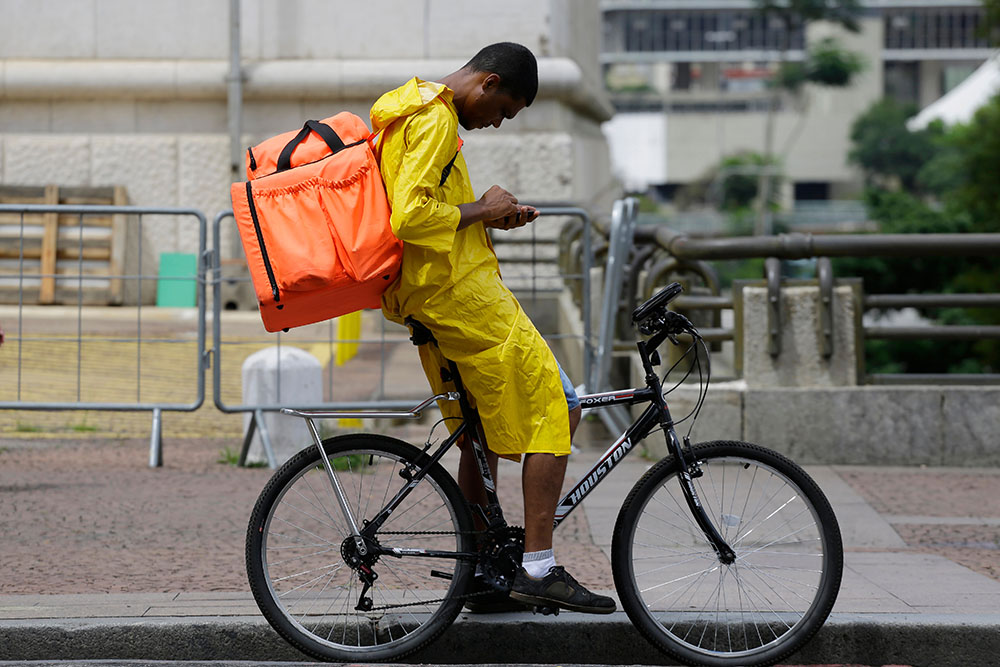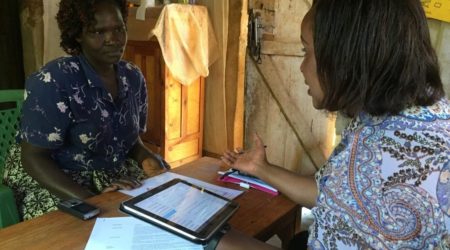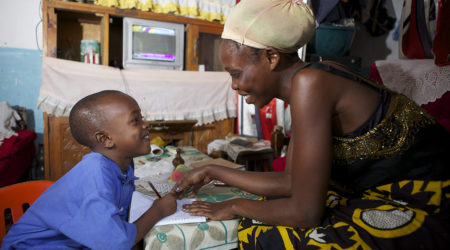What Colombia-based Rappi can learn from Chinese logistics providers in response to COVID-19

As of last weekend, Colombia had 210 confirmed cases of coronavirus, 88 of which were in Bogotá and the remaining spread throughout the country. Bogotá entered a “lockdown simulation” last Friday. Restaurants and bars shut soon after, and a country-wide shelter at home order took effect across the country on March 24.
As in other countries, we are wondering how Colombia’s vulnerable, poor, and daily-wage populations will weather this storm as it becomes increasingly clear that the restaurant, tourism, transport, and even domestic-work sectors will be frozen for at least a month.
Like mobile money in Kenya, Colombia may also have a secret weapon: Rappi, the omnipresent home-delivery service. Rappi launched in Colombia in 2015, and has raised US$1.4 billion to date as it has expanded across the region to Mexico, Brazil, and more. Its last round was lauded as the largest technology financing to date for a Latin America-based company.
In Colombia, Rappi is a part of daily life. The bicycle and motorcycle messengers, partially powered by legions of Venezuelan refugees, can be seen throughout Bogotá with their ubiquitous orange backpacks and hats, delivering everything from grocery and food, to forgotten keys, to bank payments, to eagerly-awaited six-packs of beer. Even now, as everyone else stays inside, the Rappitenderos ensure that restaurants that are closed can at least maintain some delivery business, and that people do not have to leave their homes to shop. Rappi has already noted that business is up 40% in Colombia and recently announced that food orders had tripled in Mexico.
While home delivery will be critical to flattening the curve and Rappi has been rising to meet the demand, the company needs to go further in learning from the Chinese experience. The company has already enabled customers to request “contactless deliveries” and is delivering free food to health workers, but still lags relative to its Chinese peers in terms of implementing sanitary practices and in terms of getting more workers, retailers, and users on the platform. Doing so could make Rappi the income lifeline that so many vulnerable families need, and could enable the social distancing required to flatten the curve of the pandemic.
Flattening the curve
As a start, Rappi should consider enforcing policies to ensure the messengers do not themselves become vectors for the virus. Providers on the app are reminded to wash their hands, but there is no enforcement nor facilities for them to do so. There are no centers where they can wash their hands, sanitize their backpacks, pick up masks or gloves, or get their temperature taken. Early anecdotes from China suggest these measures were critical to ensuring that delivery riders there remained healthy and did spread the virus throughout the city.
Creating such centers may not too be difficult, especially since the company has already inaugurated a number of “pit stops” and is coordinating with the mayoral office. There are closed restaurants and co-working spaces throughout the city that could quickly be converted into logistics centers for Rappi. These centers could provide anti-bacterial spray to clean packs, as well as gloves, masks, and hand-washing facilities that would go a long way in protecting Rappi clients and increasing trust in the messenger service.
Without such measures, current practices among Rappitenderos to huddle around phones on public benches and to crowd around corner stores waiting for orders, could quickly create hotspots for virus transmission. Bogotános were already frustrated with the public space occupied by the messengers, and COVID-19 is bound to heighten these tensions.
Instead, by taking proactive measures, Rappi could increase trust in-home delivery during these difficult times and create a number of jobs for gig workers when they need them most, as informal and semi-formal work in restaurants, tourism, commercial complexes, and fitness centers dries up. More trust in-home delivery could help small restaurants and grocery providers stay alive as foot traffic grinds to a halt. Furthermore, I suspect most Colombians would be happy to pay an extra fee to pay for these sanitary measures.
Next, Rappi needs to go further in protecting the messengers themselves. Measures need to be enforced to limit their contact with customers, require digital payments, prevent them from entering residential buildings, and to seek medical care should they become symptomatic. Many cannot afford to take time off or to see a doctor, so Rappi, in coordination with the state, must organize the resources to treat and reimburse them as they are the most exposed to the virus.
Growing users
Aside from growing the number of orders from existing customers, quarantine policies could present an opportunity to get a number of new retailers and new users onto the platform.
Most small corner shops and tiendas do not use the platform and instead employ their own delivery person for the neighborhood they serve. That person works around the shop and makes quick runs to customers as needed. This tends to work because Rappi fees are too high for these stores, which operate on small margins on FMCGs. Instead, shops that need support with home delivery use the “Rappi favor” functionality, which charges delivery to the end consumer but is more burdensome to use and does not offer a menu functionality.
If demand for home delivery grows or if these small stores are forced to make lay-offs, they will be looking for additional solutions for home delivery. Rappi could consider lowering fees – even temporarily – to include these retailers on the platform. They should also develop readymade templates for corner stores to build their menus since photographing and adding prices can be a real pain point. Many goods are shared among these stores and have standardized pricing so there are opportunities for economies of scale.
Similar concessions should be made to get a second wave of users on the platform. Older people, for example, may be uncomfortable operating the app and will need assistance getting registered and even placing orders. Rappi, together with the municipality, could deploy neighborhood-specific delivery people to assist them as was done in Wuhan, or could enable WhatsApp to facilitate new accounts and orders. Many families are accustomed to ordering via phone or via WhatsApp so Rappi could create a functionality for stores to “generate” Rappi invoices once people call in an order (if they have a credit card on file).
For many countries entering quarantine, home delivery is a fantasy. The idea that one could get pizza from your favorite restaurant or call for extra sugar to frost a cake without leaving your home, seems like a dream for families that are stocking up for weeks at a time. Here in Colombia, Rappi messengers keep us safe at home as we satisfy our cravings and try new recipes. They will be critical to maintaining the shelter at home order, so the firm, together with the government, needs to get organized to protect both their drivers and the larger population.



